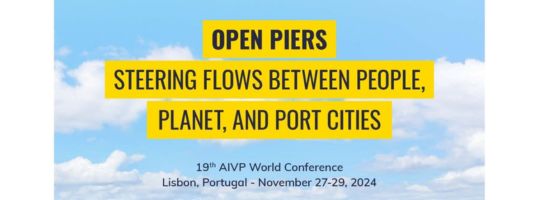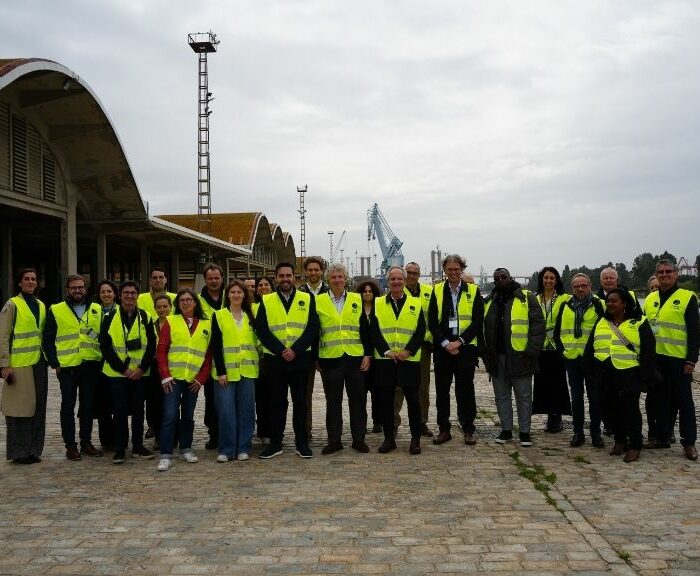Théo Fortin, from the AIVP team, represented our association at the “Green Energy Ports” conference organized by our member Port Authority of Vigo (Spain) on June 18 and 19, 2024. This seminar is part of the blue growth strategy of the Port of Vigo and its local partners.
A session on the circular economy in port cities was held on the afternoon of June 19. Théo Fortin moderated the session with 3 key questions:
- Waste recovery and industrial ecology;
- The link between the circular economy and the energy transition, notably through biofuels derived from waste;
- Eco-design and waste reduction measures.
Javier Touza, president of the Vigo fishing industry, highlighted 7 concrete projects to make his sector more eco-responsible, including the use of nets made from recycled products, retrofitting of vessels, and biomethanization of fishing by-products (offal, leftovers, etc.). He reiterated that if we are to succeed in our ecological transformation, all sectors need to show solidarity, and small businesses need to be guaranteed economic sustainability.
Andrea Ruzo, Managing Director of the Ecoalf Foundation, made the connection with one of the projects presented by Javier Touza: the recycling of used clothing fibers to make fishing nets. The textile industry is responsible for a large volume of waste. She also explained that the best waste is the waste we don’t generate, especially as much land-based waste ends up in our oceans.
Susanna Rubio, head of the environment department at the Port of Santander, spoke of the challenge that the circular economy represents for a multi-bulk port. The Port of Santander handles many different types of solid and liquid bulk traffic, so it is essential to set up recycling channels for residues and waste in each category. The cereal industry is a good example. It produces organic waste. The port recovers this waste in order to biomethanize it and produce biofuel.
José Ignacio Villar Garcia, from the Port of Vigo, has highlighted an initiative to recycle end-of-life pleasure boats. In all ports, the storage of pleasure boats is a major problem. When they reach the end of their life, recycling them is not easy, as most of these vessels are not eco-designed. The Port of Vigo, together with its local partners, has set up a dismantling and recycling network. José Ignacio also presented several bonus initiatives to encourage port operators to generate less waste during handling or in their facilities.
The four speakers engaged in a lively discussion with the audience. The main conclusions were that a financial incentive could be a major tool for reinforcing the circularity of port activities. It is also It’s a question of awareness and cooperation because no single player can drive change alone. The port acts as a connection point, enabling goods (including waste), people and ideas to circulate.





